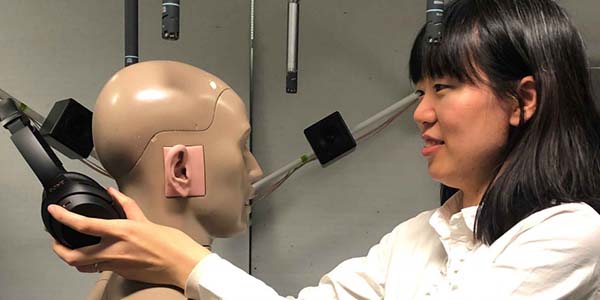Undergraduate engineering programs at the ANU include the 4-year Bachelor of Engineering with embedded Honours, and its elite twin the 4-year Bachelor of Engineering (Research and Development)(Honours). The Bachelor of Engineering (Honours) in Software Engineering combines Computing with the Engineering systems and design core. Within these programs students can pursue a wide range of minors, majors, and specialisations.
Students in ANU science and humanities programs may be able to complement their degree with a minor or major in Computer Science.
With just one more year of study our Engineering programs can also be combined with another ANU program as a flexible double degree.
Programs

Bachelor of Engineering (Honours)
Do you want an engineering degree designed for the future? Our Bachelor of Engineering is the answer.

Bachelor of Engineering (Research and Development) (Honours)
Do you want to make solar energy more efficient, create new technology in robotics or even develop materials to support the growth of human cells?

Bachelor of Engineering (Honours) in Software Engineering
A professional engineering program combining the skills of system and design engineering with software development.
Minors, Majors and Specialisations
| BEng | BEng(R&D) | ||
|---|---|---|---|
| Minors |
|||
| Humanitarian Engineering | ✔ | ✔ | |
| Sustainable Systems | ✔ | ✔ | |
| Electronic and Communication Systems | ✔ | ✔ | |
| Mechatronic Systems | ✔ | ✔ | |
| Renewable Energy Systems | ✔ | ✔ | |
| Majors |
|||
| Aerospace Systems Engineering | ✔ | ✔ | |
| Environmental Systems | ✔ | ✔ | |
| Electronic and Communication Systems | ✔ | ✔ | |
| Mechatronic Systems | ✔ | ✔ | |
| Renewable Energy Systems | ✔ | ✔ |
Find out more about our Humanitarian Engineering:
Find out more about our ENGN1211 Discovering Engineering Course:\
Find out more about our Systems Engineering \
Find out more about studying our Renewable Energy Major:\
Why study Engineering at ANU?
Do you want to make solar energy more efficient and live in a sustainable city, or create new technologies in robotics, uncrewed aircraft and wireless Internet of Things or build effective software systems that address complex problems in a broad range of domains? Then we have a degree for you!
Successful engineers need to understand how disciplines work together. Our state-of-the-art degrees ensure that you will be able to design, analyse and manage the complex systems of the future. Our exceptional degrees will allow you to not only excel in your career, but also make a real difference and help to solve some of the world’s largest problems.
ANU engineering degrees are unique in Australia, integrating discipline-specific training with an ANU Systems Engineering approach to professional practice, for transformational impact and critical thinking. The ANU Systems Engineering approach [1] has been developed by the School (see Figure below) and provides a systematic process for scoping, designing, building, operating and decommissioning a system to address a specified need. All systems courses have an emphasis on learning-by-doing with consistent engagement with industry and other external stakeholders. The undergraduate systems engineering core includes seven undergraduate courses that span the ANU system engineering process from Discovering Engineering to the Capstone or Individual Engineering Project.

[1] Jenny Simmons, Jeremy Smith and Marnie Shaw, “Initial outcomes of the redevelopment of an integrated systems engineering curriculum”, in Proc. 33rd Australasian Association for Engineering Education (AAEE) conference, Sydney, 4-6 Dec. 2022.
Course Structures
The ANU engineering degrees are aligned with ANU’s mission to provide our graduates with “disciplinary depth and transdisciplinary breadth to provoke critical thinking and problem solving”. To realise this, the ANU engineering degrees are comprised of four building blocks:
- Fundamentals: A compulsory set of courses in first and second year comprising essential maths, physics, computing, electronics and mechanics.
- Systems engineering: A vertical core of systems engineering courses.
- Engineering major: A set of courses providing depth in a discipline field.
- University electives: A set of courses for personalised development of breadth or depth and multidisciplinary skills, aligned with ANU’s mission.






Course Structures for Majors
The recommended enrolment patterns for the majors are also available:
These are sample enrolment patterns and individual circumstances can vary from them. If in doubt, students should make an appointment to discuss with the program convenor.